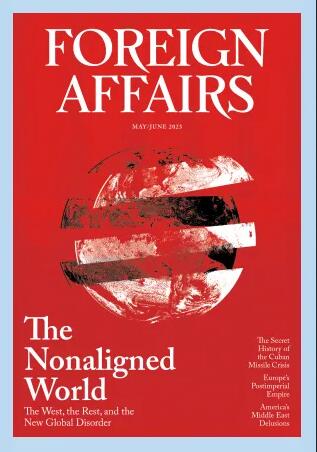俄乌战争期间乌克兰的语言问题。几个世纪以来对乌克兰语的压制对现代社会的影响
IF 6.3
2区 社会学
Q1 INTERNATIONAL RELATIONS
引用次数: 0
摘要
考虑到语言认同的重要性,对乌克兰语言问题的研究是相关的:由于大多数乌克兰人已被俄罗斯化,有必要采取明确和战略性的语言政策,以确保未来乌克兰所有事物的逐步而稳定的发展。本研究的目的是探讨乌克兰社会的语言意识现状,以及在漫长的语言犯罪期间和俄乌战争爆发后乌克兰语的建立和发展的具体情况。为了达到既定的目的,使用了以下方法:分析和综合,比较和对比,历史,历时和同步。对过去四个世纪以来禁止和限制乌克兰语发挥作用的情况进行了全面分析,特别是在教育、图书出版、办公室工作、教会等领域。该研究考察了乌克兰语言身份的发展和形成的历史阶段,并提供了独立后几年、俄罗斯入侵乌克兰东部后以及俄罗斯全面入侵后的语言问题统计数据。它发展了对语言犯罪的原因和后果的理解,并评估了俄罗斯化的各个阶段以及乌克兰不同地区俄语空间的影响。会议的重点是语言非殖民化机制- -以不同民族语言和国家为例,受语言禁令影响的国家的语言规划和民族政策的形式,以及身份认同的恢复。本书所提供的材料可用于语言学、社会学、史学和文化研究领域的进一步科学研究,特别是用于研究世界各民族语言的殖民和非殖民化进程本文章由计算机程序翻译,如有差异,请以英文原文为准。
The language issue of Ukraine during the russian-Ukrainian war. The impact of centuries of repression of the Ukrainian language on modern society
The study of the language issue in Ukraine is relevant considering the importance of linguistic identification: since most Ukrainians have been Russified, it is necessary to pursue a clear and strategic language policy that could ensure the gradual but steady development of all things Ukrainian in the future. The purpose of this research was to explore the current state of linguistic consciousness in Ukrainian society, and the specifics of the establishment and development of the Ukrainian language during the long linguistic crimes and after the outbreak of the russian-Ukrainian war. The following methods were used to achieve the set purposes: analytical and synthetic, comparative and contrastive, historical, diachronic and synchronous. A panoramic analysis of the prohibitions and restrictions on the functioning of the Ukrainian language over the past four centuries was conducted, in particular in the fields of education, book publishing, office work, the church, etc. The study examined the historical stages of the development and formation of the identity of the Ukrainian language and provided statistics on the language issue a few years after independence, after the russian aggression in eastern Ukraine, and after russia's full-scale invasion. It developed an understanding of the causes and consequences of linguistic crimes and assessed the stages of Russification and the impact of the russian-speaking space in different regions of Ukraine. Attention was focused on the mechanisms of linguistic decolonisation on the example of different national languages and countries, forms of linguistic planning and national policies of states affected by language bans, and the revival of identification. The materials presented in this work can be used for further scientific research in the field of linguistics, sociology, historiography, and cultural studies, in particular, in the study of colonisation and decolonisation processes in various national languages of the world
求助全文
通过发布文献求助,成功后即可免费获取论文全文。
去求助
来源期刊

Foreign Affairs
INTERNATIONAL RELATIONS-
CiteScore
4.80
自引率
0.00%
发文量
2
期刊介绍:
Founded in 1922, Foreign Affairs is a prominent American magazine that focuses on international relations and U.S. foreign policy. It is published by the Council on Foreign Relations, an esteemed nonpartisan think tank and membership organization dedicated to analyzing U.S. foreign policy and global affairs. While the print magazine is released every two months, the website offers daily articles and publishes anthologies every other month.
 求助内容:
求助内容: 应助结果提醒方式:
应助结果提醒方式:


